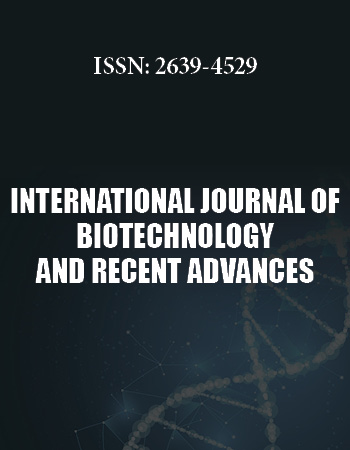International Biotechnology and Research Conference
April 25-27, 2018 Rome, Italy
Evaluation of the Pharmacological Profile of Virgin Coconut Oil (VCO) in Indomethacin-Induced Gastric Ulcer Models
Department of Biochemistry, University of Nigeria, Nigeria
Several studies have reported various health benefits of virgin coconut oil (VCO) including its use for weight management, treatment of burns, various infections, and even HIV/AIDS. The present study was conducted to evaluate the pharmacological profile of VCO in indomethacin-induced gastric ulcer models. Twenty-four (24) Wistar albino rats were used for the study and were divided into 6 groups of 4 rats each. Group 1 rats served as the normal control; Group 2 (positive control) rats were administered with indomethacin only, at a dose of 100 mg/kg b.w. Group 3 rats were treated with a standard drug (cimetidine) at a dose of 100 mg/kg b.w. Groups 4 (3 ml/kg b.w. VCO), 5 (6 ml/kg b.w. VCO) and 6 (9 ml/kg b.w. VCO) rats were treated as stated. The extract (VCO) and the standard drug were dissolved in distilled water, and were administered orally to the rats. Treatment with the standard drug (group 3) and VCO (groups 4, 5 and 6) lasted for four days, followed by indomethacin induction (groups 2 to 6) after an overnight fasting. Four (4) hours after induction, the rats were sacrificed and the blood samples collected for biochemical analyses. Stomach tissues were also harvested for histological examination. The gastric ulcer index of rats in groups 4 and 6 was found to be significantly (p < 0.05) higher compared to that of group 1, while group 5 rats treated with 6 ml/kg b.w. VCO, showed a non-significant (p > 0.05) increase in the gastric ulcer index compared to that of group 1. The ulcer protective indices of low, mid and high doses of the oil were found to be 38.71, 54.84 and 48.39 respectively, which were found to be higher compared to the standard control (6.45). Treatment with VCO resulted in a non-significant (p > 0.05) increase in the gastric juice volume of rats in groups 4, 5 and 6 compared to that of group 1. There was no significant (p > 0.05) decrease in the gastric pH of groups 4 and 5 rats when compared to the normal control. However, a significant (p < 0.05) decrease in the gastric pH was observed when a high dose of the extract was administered. Administration of the extract resulted in no significant (p > 0.05) differences in the lipid profile, lipid peroxidation and antioxidant parameters, compared to the normal control. Histological findings revealed that stomach sections of rats in groups 4 and 5 showed moderate widespread mucosal necrosis and ulceration, while that of group 6 rats showed focal area of mucosal ulceration with evidence of healing by fibrosis when compared to group 1. The findings of this research revealed that virgin coconut oil (VCO) possesses ulcer ameliorative properties and could therefore be used for the treatment of gastric ulcers. The pharmacological properties of virgin coconut oil could be anchored on mechanisms such as the ability to scavenge free radicals, stabilize cell membranes, stimulate mucous and prostaglandin secretion, inhibit Helicobacter pylori and modulate lecithin cholesterol acyltransferase (LCAT) activity.
Biography:
Dr. Parker Elijha Joshua is currently working as a faculty in department of Biochemistry at University of Nigeria. He got his Phd in Medical Biochemistry from University of Nigeria in 2009. He completed his master degree from University of Nigeria in 2005.


